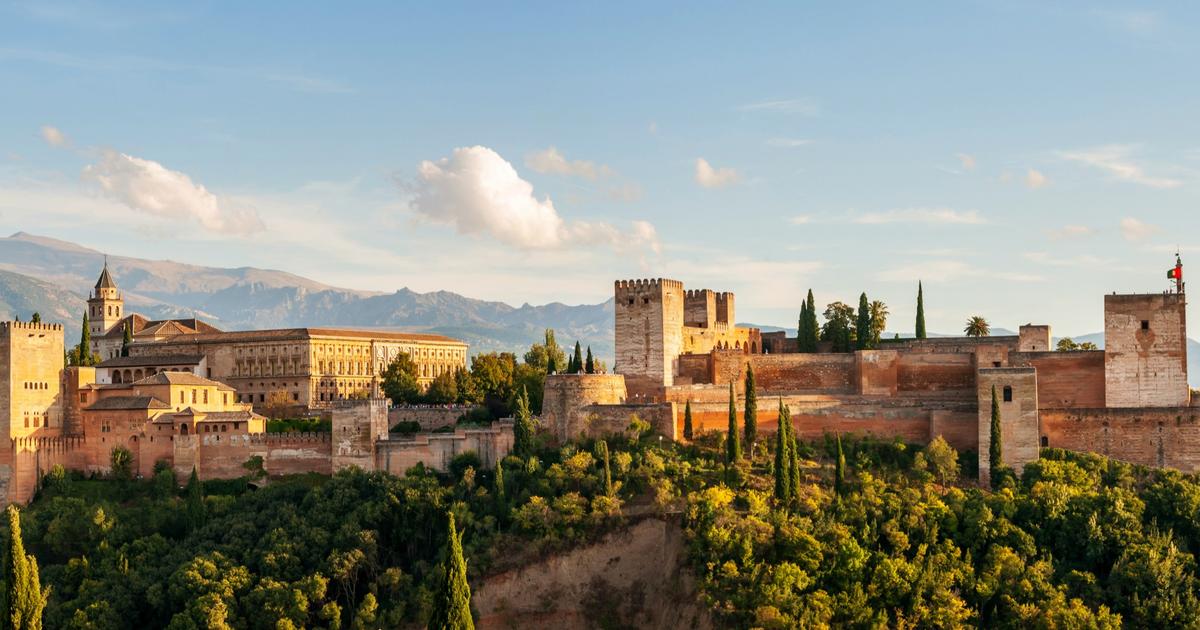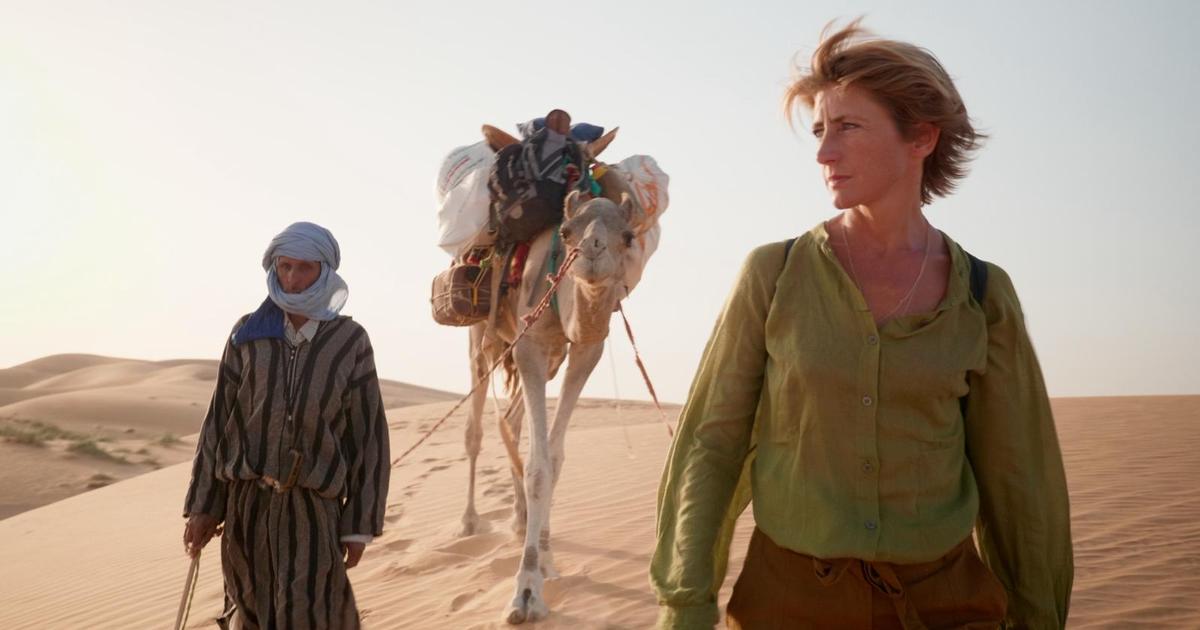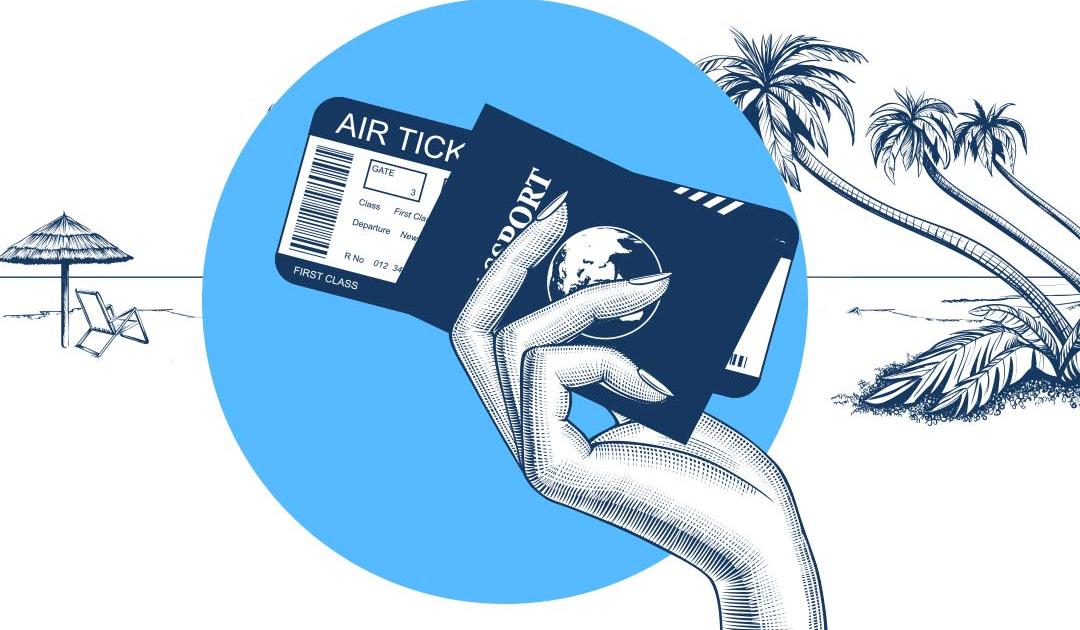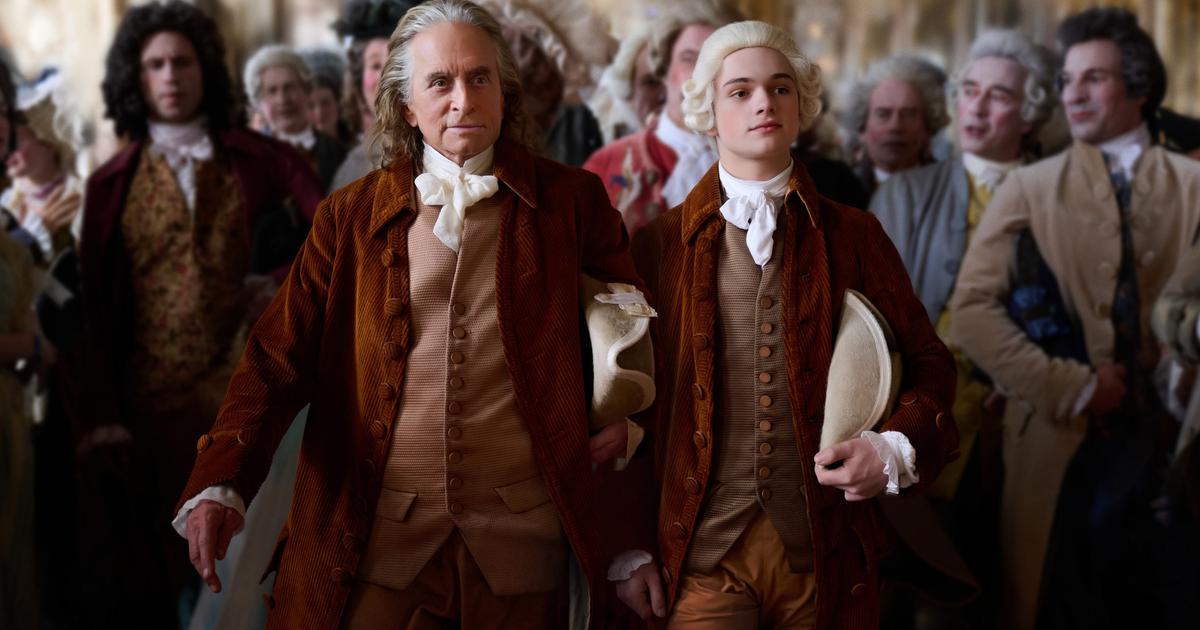Spain and North Africa embraced for centuries.
Vestiges of this love story are everywhere.
Hidden in the language and in the dance, in the traditions, in the art and the poetry, in the way of being or eating or dressing, in the looks, in the genes and in thousands of old files scattered throughout the desert.
This is the exciting journey proposed by the Asturian playwright Marco Magoa with his play
El mismo dolor
, which was performed in Mauritania in January and February, and which begins in Córdoba in the year 979 with the burning of the library by Almanzor and ends in Timbuktu. , from where the manuscripts were removed in 2012 to save them from radicals.
A thousand years later, beauty, knowledge and culture were still persecuted.
And still today.
The work already premiered in Morocco last year, but taking it to Tichit, a town in the middle of the Mauritanian desert that was on the caravan route to the Niger Bend, acquired a special meaning.
"More than anything, Mauritania has been a discovery for me," says Magoa, author and director of the show.
“I knew of his love for poetry, but it is more than I imagined.
Then the logistics of carrying all the scenery and costumes across the desert was complex, but after all that's what they did hundreds of years ago carrying books.
Today it is easier than then, ”he adds.
Magoa began writing the work just after the hardest part of the covid-19 confinement and also coincided with the death of his mother.
Both events left their mark on the creative process.
“That was a hard desert to cross, then I understood that for millennia these are the things that unite all cultures, all human beings: the loss of a mother, our fragility in the face of a pandemic, the persecution of culture (the monsters are here, they have returned), the precariousness of art, the fear of loneliness, the need for the other, for beauty”.
The work tells the story of two young people, Rafiq, an Andalusian Arab in search of his beloved, and Cardelle, a Mozarabic warrior in search of his falcon, who was interpreted by the author himself in Mauritania.
After the burning of the Córdoba library by Almanzor, both decide to flee to Africa taking with them some books that they have been able to save, but their journey will end up lasting a thousand years and will be filled with the voices of poets such as Al-Mutanabbi, Ibn Zaydun, Walada Bent al-Mustakfi, Carmen Jodra, Al Marri or Al-Mutamid.
Until they reach Timbuktu, their final destination, they will meet other characters, such as three Tuaregs and a child soldier named Rasul who, quoting Al Quti, reminds them that "flowers don't grow in deserts, but verses are sung."
The work is a hymn to Andalusian and contemporary poetry, also to theater and those who cross the deserts of life, sacrificing everything to create, to protect the beautiful.
Marco Magoa, author of 'The same pain'
“The work is a hymn to Andalusian and contemporary poetry, also to the theater and those who cross the deserts of life, sacrificing everything to create, to protect the beautiful;
art, science and love”, explains the author, who wanted to pay a special tribute to those who throughout history and right now try to take care of the manuscripts.
“Those people who were expelled centuries ago from the peninsula crossed the Mediterranean, the Maghreb, the Sahel, seeding Morocco, Mauritania, Mali with libraries.
How curious that a thousand years later we continue burning libraries, bombing theaters.
The jihadists tried to burn libraries in Timbuktu, such as the Kati fund, full of Andalusian manuscripts that the Malian Ismael Diadié cared for with so much effort, now in exile in Spain, ”he adds.
After Tichit, the play premiered at the Nouakchott Youth House.
In addition to the Arabic and Spanish of the first version, the author included other languages also spoken in Mauritania, such as Pulaar, Wolof or Soninke, for performances in this country.
The four actors who represent Rafiq at different times, two women and two men, were Mauritanians, as well as the boy who played Rasul, who in Tichit was Bechir, aged 12, a member of the family that owns the house where they stayed. during his stay in this city.
“They are generous and uniquely talented.
The boy stole our hearts,” recalls Magoa.
The work is the result of several performing arts and creative writing workshops given by Marco Magoa himself in Sudan and Morocco, aimed in Arabic at young actors, artists, writers and technicians.
Actors of the play 'The same pain', by Marco Magoa, during a performance at the Youth House in Nouakchott.
/ MOKHTAR DEYIN
Hundreds of Mauritanian families have preserved for centuries and with great difficulty an authentic cultural treasure made up of tens of thousands of ancient manuscripts, mostly in private libraries located in ancient cities such as Tichit, Chingueti or Ouadane.
Though less well known than the Timbuktu books, most of which are digitized today in Bamako after being driven out of the city by the jihadist occupation of 2012, the Mauritanian manuscripts are a marvelous collection of scholarly art and lore and art. Muslim copyists from the 11th century to the present.
Some of them came from Al Andalus.
“The project also speaks of that censorship that culture has suffered, but I wanted it to be beautiful and colorful.
The friendship between the two main characters represents the need we have to understand each other across cultures, ”explains Magoa, who acknowledges that during his stay in Mauritania he has felt the link that exists with that part of Spanish history.
“Manuscripts and libraries connected both territories and today it is perceived as a kind of nostalgia for that relationship.
In Spain we are privileged to have that bond, although many people do not even perceive or value it”.
"It has been an honor to have helped bring this work to Mauritania," says Miriam Álvarez de la Rosa Rodríguez, ambassador of Spain in this country.
“As soon as we met it, we saw that it was a function that fit perfectly, not only in our cultural programming, but also in the programming of the Mauritanian Ministry of Culture and in the Festival of Heritage Cities.
The fact that Tichit, Oualata, Chinguetti and Ouadane are part of the UNESCO World Heritage Site is precisely a wake-up call about their importance.
It is also a link between Mauritania and Spain that is not always well known in our country.
As Marco points out in his work, the Almoravids departed from here in the 11th century and later arrived in Al-Andalus,
Since then, the great information highways that crossed Africa towards Europe passed through here and through which we received not only fabrics, salt and spices, but also some of the pillars of what our culture is today.
The Mauritanian people are proud of their history and are very aware of this link with Spain and from the Embassy we want, to the extent that we modestly can, contribute to remembering that link and, in this way, thank our Mauritanian friends for their love and friendship".
Marco Magoa is a director, actor, playwright and theater producer passionate about Arabic culture and language, which has led him to spend seasons in Morocco or Syria, and live in Egypt.
His works have brought thorny issues such as war, refugees and migration to the stages of Europe, the United States, Africa and the Middle East.
Next March he will visit the University of Siena, in Italy, where his works are being translated.
In 2007 he created his own company, teatro4m, with which he has represented twenty shows around the world.
You can follow PLANETA FUTURO on
,
and
, and subscribe
here
to our 'newsletter'
.

/cloudfront-eu-central-1.images.arcpublishing.com/prisa/GG44HPNWYNHFDONE4E3W3MJACY.JPG)

/cloudfront-eu-central-1.images.arcpublishing.com/prisa/FY5V6P4GBFGVTJRMTBS4UOIEDA.jpg)
/cloudfront-eu-central-1.images.arcpublishing.com/prisa/WSGIPYQJ3ZBJBLTWACM5ZX2QGA.jpg)



